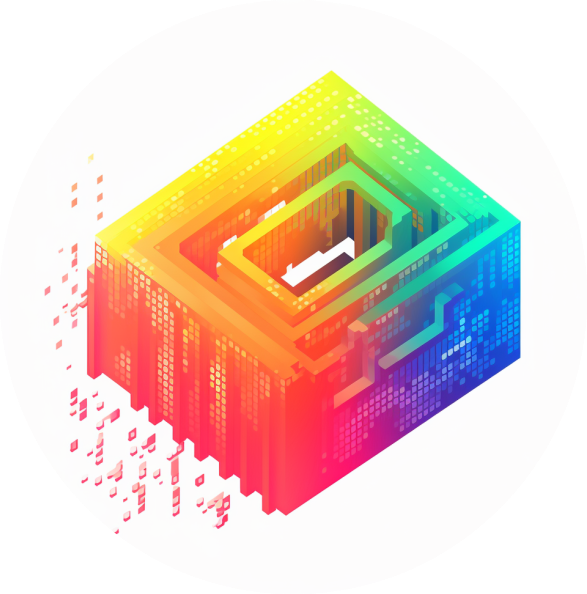“Become a Coding Pro with Help from These 13 Resources” is a comprehensive article that offers a curated list of 13 programming blogs and websites. This collection is designed to assist individuals in enhancing their coding skills, regardless of their level of expertise. The highlighted blogs and websites encompass various programming topics and languages, ensuring that both beginners and advanced readers can find valuable resources. Notable mentions include Better Programming, Lynda, David Walsh Blog, CSS Tricks, and NSHipster. Furthermore, the article provides useful tips for programming beginners, including starting with the basics, finding a programming buddy, and learning through practice. It also emphasizes the benefits of running a programming blog, such as enhancing technical skills, creating a brand, and effectively expressing ideas. Ultimately, the article underscores the importance of continuous coding practice and recommends following the listed websites to improve programming skills. With these 13 resources at their disposal, readers can become coding pros in no time.
Websites for Beginners
Better Programming
Better Programming is a comprehensive website that offers a wide range of resources for beginners entering the world of programming. The website covers various programming languages, including Python, Java, C++, and JavaScript, providing tutorials, articles, and code examples to help beginners grasp the fundamentals. With its user-friendly interface and well-written content, Better Programming is an excellent starting point for beginners looking to build a solid foundation in programming.
Lynda
Lynda is an online learning platform that offers a vast library of video tutorials on various programming topics. From beginner to advanced levels, Lynda provides courses taught by industry professionals, ensuring high-quality instruction. With Lynda, beginners can learn programming at their own pace, watching videos, and practicing coding exercises. The platform offers courses on languages like HTML, CSS, JavaScript, and more, making it a valuable resource for beginners who prefer a visual and interactive learning experience.
Websites for Advanced Programmers

David Walsh Blog
David Walsh Blog is a widely respected website that caters to advanced programmers. This blog covers advanced topics in front-end development, JavaScript, and web development in general. David Walsh, the founder, shares his expertise and insights through in-depth tutorials, code snippets, and practical examples. Advanced programmers looking to explore cutting-edge techniques and stay updated with the latest trends in web development will find David Walsh Blog a valuable resource.
CSS Tricks
CSS Tricks is a popular website dedicated to providing advanced CSS techniques, tricks, and tips. For programmers who want to master the art of styling websites, CSS Tricks offers a wealth of resources, including tutorials, demos, and articles. The website covers advanced concepts like responsive design, animations, and CSS frameworks. With its user-friendly interface and clear explanations, CSS Tricks is a valuable resource for programmers looking to level up their CSS skills.

NSHipster
NSHipster is a website focused on advanced topics in iOS and macOS development. This blog dives deep into the intricacies of Apple’s frameworks and provides insights into the best practices and hidden gems of iOS development. NSHipster offers thorough explanations, code samples, and practical advice for experienced iOS developers. Whether it’s Objective-C, Swift, or the latest Apple frameworks, NSHipster is a must-read for advanced programmers working in the iOS ecosystem.
Starting with the Basics
Understanding Variables
Variables are essential building blocks of any programming language. Beginners should start by understanding the concept of variables and how they are used to store and manipulate data. A variable represents a memory location that holds a value, which can be changed during the execution of a program. Learning how to declare, assign values to, and retrieve values from variables is crucial for beginners to build a solid foundation.

Working with Loops
Loops are programming constructs that allow repetitive execution of a block of code. Beginners should familiarize themselves with different types of loops, such as for loops, while loops, and do-while loops. These loops enable programmers to iterate over collections, perform calculations, and execute tasks until a certain condition is met. Understanding how loops work and how to use them effectively will significantly enhance a beginner’s programming skills.
Conditional Statements
Conditional statements are used to control the flow of a program based on specific conditions. Beginners must learn the concepts of if statements, else statements, and else if statements to make their programs perform different actions based on different conditions. Conditional statements allow programmers to create decision-making processes within their code, enabling more flexibility and interactivity. Mastering conditional statements is a critical step in a beginner’s journey to becoming a proficient programmer.
Finding a Programming Buddy

Joining Coding Communities
Joining coding communities is an excellent way for beginners to connect with like-minded individuals who share their passion for programming. Online platforms such as Stack Overflow, GitHub, and Reddit offer active communities where beginners can seek guidance, ask questions, and collaborate with more experienced programmers. Engaging in coding communities not only provides opportunities for learning but also fosters a supportive environment where beginners can find mentors and programming buddies.
Attending Hackathons
Hackathons are events where programmers come together to work collaboratively on creative projects within a specified time frame. Participating in hackathons provides beginners with invaluable practical experience, as they get to work on real-world coding challenges alongside other passionate programmers. Hackathons offer opportunities for networking, learning from experienced professionals, and gaining exposure to different programming languages and technologies. Attending hackathons can be a thrilling and fulfilling experience for beginners seeking to enhance their programming skills.
Learning by Practicing

Building Small Projects
Building small projects is an effective way for beginners to apply their newly acquired programming knowledge and skills. By working on small projects, beginners can practice coding concepts in a practical setting, gaining hands-on experience with real-world scenarios. Small projects can range from creating a basic calculator or a to-do list application to developing a simple website. These projects provide a sense of accomplishment, boost confidence, and enable beginners to showcase their coding abilities.
Participating in Coding Challenges
Participating in coding challenges can help beginners strengthen their problem-solving skills and expand their coding capabilities. Platforms like HackerRank, LeetCode, and CodeWars offer a variety of coding challenges for programmers of all levels. These challenges often require solutions that integrate multiple programming concepts, pushing beginners to think critically and creatively. By solving coding challenges, beginners gain exposure to different problem domains and improve their ability to write efficient and optimized code.
Benefits of Running a Programming Blog
Enhancing Technical Skills
Running a programming blog requires continuously exploring and researching various programming topics. As bloggers create content, they delve deep into programming concepts, learn new languages, explore different frameworks, and tackle complex problems. Writing blog posts allows programmers to solidify their understanding of programming concepts and reinforces their technical skills through the process of explaining and teaching others.
Creating a Brand
Running a programming blog can help advanced programmers create and establish their personal brand in the industry. By consistently sharing valuable insights and knowledge through blog posts, programmers can position themselves as experts in their respective domains. This brand recognition can open doors to new opportunities, including speaking engagements, consulting projects, and job offers. A programming blog serves as a platform for advanced programmers to showcase their expertise and build a reputation within the programming community.
Expressing Ideas Effectively
Running a programming blog enables advanced programmers to express their ideas, thoughts, and opinions in a structured and coherent manner. Through blog posts, programmers can articulate complex concepts, share coding techniques, and provide step-by-step tutorials. This process of translating their knowledge into written content helps programmers refine their communication skills, making them more effective at conveying their ideas to readers. A programming blog serves as a medium for programmers to contribute to the programming community and make a meaningful impact.
Continuous Coding Practice
Making Coding a Habit
To become an accomplished programmer, it is essential to make coding a consistent habit. By setting aside dedicated time each day or week for coding practice, beginners and advanced programmers alike can develop their skills and deepen their understanding of programming concepts. Consistent coding practice helps programmers stay engaged and motivated, allowing them to progress steadily and continuously improve their coding abilities.
Utilizing Online Coding Platforms
Online coding platforms offer a wealth of resources and opportunities for continuous coding practice. Platforms like Codecademy, FreeCodeCamp, and Udemy provide structured courses, interactive coding exercises, and projects for learners of all levels. These platforms enable programmers to learn new languages, explore advanced topics, and track their progress. By utilizing online coding platforms, programmers can access a vast array of curated content and exercises to continually challenge themselves and enhance their coding skills.
Conclusion
In conclusion, continuous practice is paramount for both beginners and advanced programmers to improve their coding skills. The websites listed in this article, such as Better Programming, Lynda, David Walsh Blog, CSS Tricks, and NSHipster, offer valuable resources and insights for programmers at various proficiency levels. Beginners should start with the basics, understand variables, work with loops, and learn conditional statements. They can further enhance their skills by finding a programming buddy, joining coding communities, and attending hackathons. Engaging in continuous learning is crucial, through building small projects and participating in coding challenges. Running a programming blog brings benefits like enhancing technical skills, creating a personal brand, and expressing ideas effectively. Lastly, making coding a habit and utilizing online coding platforms are essential for continuous practice. By following these recommendations and utilizing the suggested websites, programmers can take their coding skills to new heights and achieve their goals in the world of programming.

